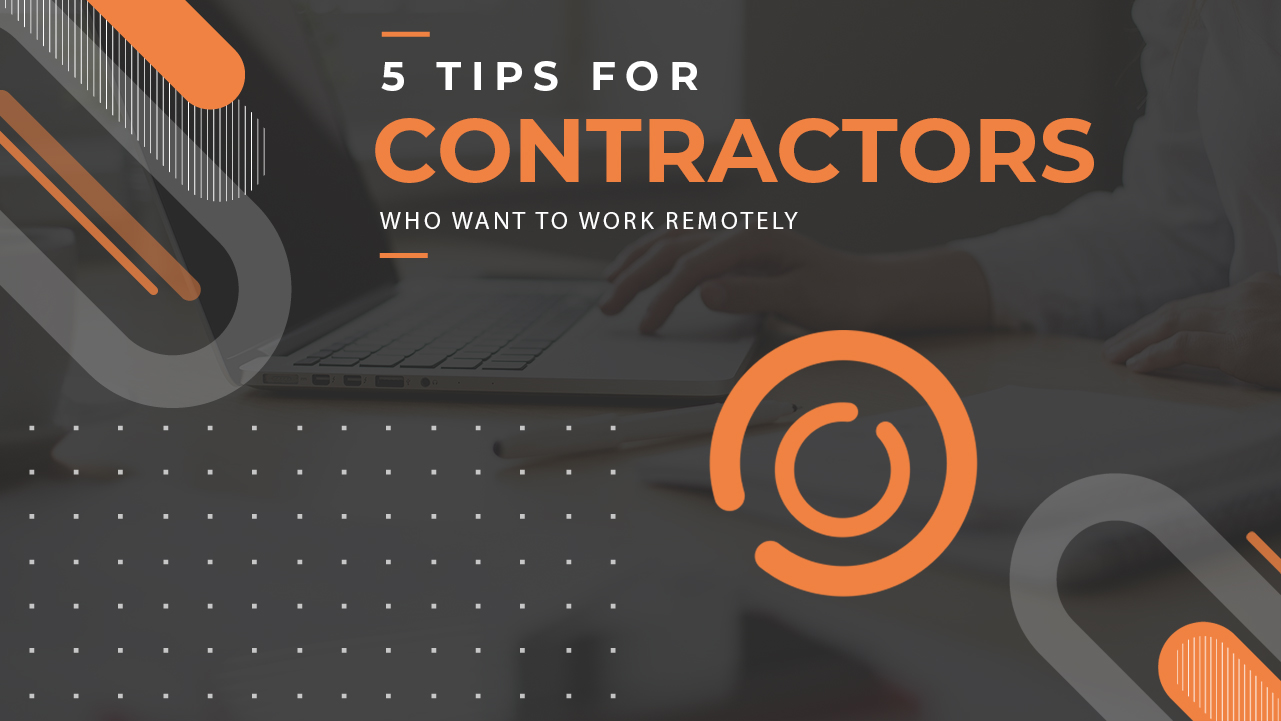
Evie Jenkins
5 tips for contractors who want to work remotely
- July 6, 2019
- , 10:09 am
- , Advice for Contractors
Remote working comes with many benefits. It allows you to work in a location and at a time that suits you, and creates a better work life balance.
Employers also benefit from having remote workers, with reduced office costs, a happier and more motivated workforce and a larger talent pool to recruit from.
This doesn’t mean that all employers are already convinced though. Common concerns include employees slacking off, not integrating with the rest of the team and not getting work done to a high enough standard.
If you’re looking for a remote position, we’ve pulled together some top tips to finding and winning remote contracts, as well as reassuring employers that you’re right for the job.
Be clear up front about how you want to work
Being clear in your own mind as to how you want to work is the first step. Consider why you want to work remotely, how much of a priority it will be for you, and how you would be willing to compromise.
When you begin searching, some employers will state in the job description or to their recruiter that they are happy to consider a remote worker.
Others may not mention it or may have indicated that they would prefer an in-house contractor. Don’t let this put you off though.
Whether or not you already know where they stand or not, you should always mention your preferences up front. For the right candidate, some employers may make an exception.
It also saves you both time in the long run, as an employer may have a valid reason why they cannot work with a remote contractor. Most of the time you’ll be able to find a compromise, possible an induction period on site, or a day a week where you travel to the office.
Be prepared to answer questions honestly
While you might feel that you need an elaborate reason to work from home, it’s never worth making something up that you think the employer will accept.
They need to know they can trust you, so if the reason is simply that you have a pet that needs company, don’t fancy the commute or just prefer working from home, be honest!
A good manager will understand that everyone works differently and has different priorities.
You may also face questions about exactly how, where and when you will work. Again answer honestly but show you are willing to be flexible.
Ask questions in return about what they would need from you. For example, the core hours they need you to be online or what software they currently use to stay connected.
Consider skills that can make you more competitive
Take a look through your current resume and consider if there are any courses or skills that could make you stand out from the competition for a remote job.
These could be courses linked to your job, to show you keep your knowledge fresh. It can also be useful to get training with recent technology, as you will probably have to depend more on technology to stay connected as a remote worker.
Of course, useful skills don’t have to be related directly to your job. Many softer skills can help when it comes to remote working, such as organization, time management and effective communication.
If a training course isn’t applicable, consider reading books and articles that you can work into conversation. Being able to confidently discuss a productivity method you use or some latest research on self motivation could swing the dial in your favour.
Taking courses or upskilling in your own time also shows initiative and a proactive attitude, which can help you land that dream contract.
Use an agency that has handled remote workers before
When you are searching for a job this can make a huge difference. Many contractors find work with the help of an agency or specialist networks like ClearHub.
Talk to your contact at the agency to find out if they regularly place remote workers. It may be something they discuss with employers in their initial conversations, or they may be willing to broach it for you when they put you forward for the job.
Having the support of a recruitment expert can be invaluable, as they can provide you insights of what the employer might want before you’re interview.
They can also help you look at your options. For example working from home full time, using coworking spaces or splitting your time between the office and home.
Don’t settle for a job just because it’s remote
The most important factor to consider when looking for remote work is still the job itself. Although you may be set on working remotely, taking a job just because it offers this may not be great for you in the long run.
If you aren’t passionate and happy with the work you are doing, you may find that working remotely becomes more of a chore than a benefit. Neither you or your employer will benefit in this situation.
With remote work becoming more popular, and certain skills growing in demand, there’s no reason to settle for the first remote offer you get.
Do you regularly work remotely? We’d love to hear about your experience of finding remote positions in the comments below!


